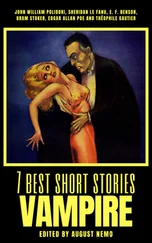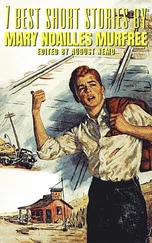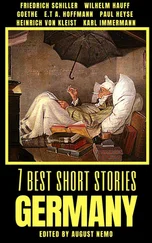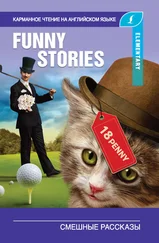Major Griggs hurried down to the corner, and up the avenue into Billy’s place. “Gimme a rye-high,” he said to the servitor. “Haven’t seen a bow-legged, dirty-faced little devil of a six-year-old lost kid around here anywhere, have you?”
Mr. Toomey retained Miss Purdy’s hand on the steps. “Think of that dear little babe,” said Miss Purdy, “lost from his mother’s side – perhaps already fallen beneath the iron hoofs of galloping steeds – oh, isn’t it dreadful?”
“Ain’t that right?” agreed Mr. Toomey, squeezing her hand. “Say I start out and help look for um!”
“Perhaps,” said Miss Purdy, “you should. But, oh, Mr. Toomey, you are so dashing – so reckless – suppose in your enthusiasm some accident should befall you, then what – ”
Old man Denny read on about the arbitration agreement, with one finger on the lines.
In the second floor front Mr. and Mrs. McCaskey came to the window to recover their second wind. Mr. McCaskey was scooping turnips out of his vest with a crooked forefinger, and his lady was wiping an eye that the salt of the roast pork had not benefited. They heard the outcry below, and thrust their heads out of the window.
“’Tis little Mike is lost,” said Mrs. McCaskey, in a hushed voice, “the beautiful, little, trouble-making angel of a gossoon!”
“The bit of a boy mislaid?” said Mr. McCaskey, leaning out of the window. “Why, now, that’s bad enough, entirely. The childer, they be different. If ’twas a woman I’d be willin’, for they leave peace behind ’em when they go.”
Disregarding the thrust, Mrs. McCaskey caught her husband’s arm.
“Jawn,” she said, sentimentally, “Missis Murphy’s little bye is lost. ’Tis a great city for losing little boys. Six years old he was. Jawn, ’tis the same age our little bye would have been if we had had one six years ago.”
“We never did,” said Mr. McCaskey, lingering with the fact.
“But if we had, Jawn, think what sorrow would be in our hearts this night, with our little Phelan run away and stolen in the city nowheres at all.”
“Ye talk foolishness,” said Mr. McCaskey. “’Tis Pat he would be named, after me old father in Cantrim.”
“Ye lie!” said Mrs. McCaskey, without anger. “Me brother was worth tin dozen bog-trotting McCaskeys. After him would the bye be named.” She leaned over the window-sill and looked down at the hurrying and bustle below.
“Jawn,” said Mrs. McCaskey, softly, “I’m sorry I was hasty wid ye.”
“’Twas hasty puddin’, as ye say,” said her husband, “and hurry-up turnips and get-a-move-on-ye coffee. ’Twas what ye could call a quick lunch, all right, and tell no lie.”
Mrs. McCaskey slipped her arm inside her husband’s and took his rough hand in hers.
“Listen at the cryin’ of poor Mrs. Murphy,” she said. “’Tis an awful thing for a bit of a bye to be lost in this great big city. If ’twas our little Phelan, Jawn, I’d be breakin’ me heart.”
Awkwardly Mr. McCaskey withdrew his hand. But he laid it around the nearing shoulder of his wife.
“’Tis foolishness, of course,” said he, roughly, “but I’d be cut up some meself if our little Pat was kidnapped or anything. But there never was any childer for us. Sometimes I’ve been ugly and hard with ye, Judy. Forget it.”
They leaned together, and looked down at the heart-drama being acted below.
Long they sat thus. People surged along the sidewalk, crowding, questioning, filling the air with rumours, and inconsequent surmises. Mrs. Murphy ploughed back and forth in their midst, like a soft mountain down which plunged an audible cataract of tears. Couriers came and went.
Loud voices and a renewed uproar were raised in front of the boarding-house.
“What’s up now, Judy?” asked Mr. McCaskey.
“’Tis Missis Murphy’s voice,” said Mrs. McCaskey, harking. “She says she’s after finding little Mike asleep behind the roll of old linoleum under the bed in her room.”
Mr. McCaskey laughed loudly.
“That’s yer Phelan,” he shouted, sardonically. “Divil a bit would a Pat have done that trick. If the bye we never had is strayed and stole, by the powers, call him Phelan, and see him hide out under the bed like a mangy pup.”
Mrs. McCaskey arose heavily, and went toward the dish closet, with the corners of her mouth drawn down.
Policeman Cleary came back around the corner as the crowd dispersed. Surprised, he upturned an ear toward the McCaskey apartment, where the crash of irons and chinaware and the ring of hurled kitchen utensils seemed as loud as before. Policeman Cleary took out his timepiece.
“By the deported snakes!” he exclaimed, “Jawn McCaskey and his lady have been fightin’ for an hour and a quarter by the watch. The missis could give him forty pounds weight. Strength to his arm.”
Policeman Cleary strolled back around the corner.
Old man Denny folded his paper and hurried up the steps just as Mrs. Murphy was about to lock the door for the night.
Baldy Woods reached for the bottle, and got it. Whenever Baldy went for anything he usually – but this is not Baldy’s story. He poured out a third drink that was larger by a finger than the first and second. Baldy was in consultation; and the consultee is worthy of his hire.
“I’d be king if I was you,” said Baldy, so positively that his holster creaked and his spurs rattled.
Webb Yeager pushed back his flat-brimmed Stetson [106], and made further disorder in his straw-coloured hair. The tonsorial recourse being without avail, he followed the liquid example of the more resourceful Baldy.
“If a man marries a queen, it oughtn’t to make him a two-spot,” declared Webb, epitomising [107]his grievances.
“Sure not,” said Baldy, sympathetic, still thirsty, and genuinely solicitous concerning the relative value of the cards. “By rights you’re a king. If I was you, I’d call for a new deal. The cards have been stacked on you – I’ll tell you what you are, Webb Yeager.”
“What?” asked Webb, with a hopeful look in his pale-blue eyes.
“You’re a prince-consort.” [108]
“Go easy,” said Webb. “I never blackguarded you none.”
“It’s a title,” explained Baldy, “up among the picture-cards; but it don’t take no tricks. I’ll tell you, Webb. It’s a brand they’re got for certain animals in Europe. Say that you or me or one of them Dutch dukes marries in a royal family. Well, by and by our wife gets to be queen. Are we king? Not in a million years. At the coronation ceremonies we march between little casino and the Ninth Grand Custodian of the Royal Hall Bedchamber. The only use we are is to appear in photographs, and accept the responsibility for the heir-apparent. That ain’t any square deal. Yes, sir, Webb, you’re a prince-consort; and if I was you, I’d start a interregnum or a habeas corpus [109]or somethin’; and I’d be king if I had to turn from the bottom of the deck.”
Baldy emptied his glass to the ratification of his Warwick [110]pose.
“Baldy,” said Webb, solemnly, “me and you punched cows in the same outfit for years. We been runnin’ on the same range, and ridin’ the same trails since we was boys. I wouldn’t talk about my family affairs to nobody but you. You was line-rider on the Nopalito Ranch when I married Santa McAllister. I was foreman then; but what am I now? I don’t amount to a knot in a stake rope.”
“When old McAllister was the cattle king of West Texas,” continued Baldy with Satanic sweetness, “you was some tallow. You had as much to say on the ranch as he did.”
“I did,” admitted Webb, “up to the time he found out I was tryin’ to get my rope over Santa’s head. Then he kept me out on the range as far from the ranch-house as he could. When the old man died they commenced to call Santa the ‘cattle queen.’ I’m boss of the cattle – that’s all. She ’tends to all the business; she handles all the money; I can’t sell even a beef-steer to a party of campers, myself. Santa’s the ‘queen’; and I’m Mr. Nobody.”
Читать дальше
Конец ознакомительного отрывка
Купить книгу
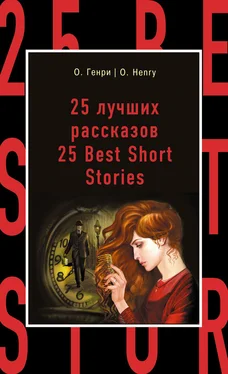
![Коллектив авторов - Best Short Stories [С англо-русским словарем]](/books/26635/kollektiv-avtorov-best-short-stories-s-anglo-thumb.webp)


